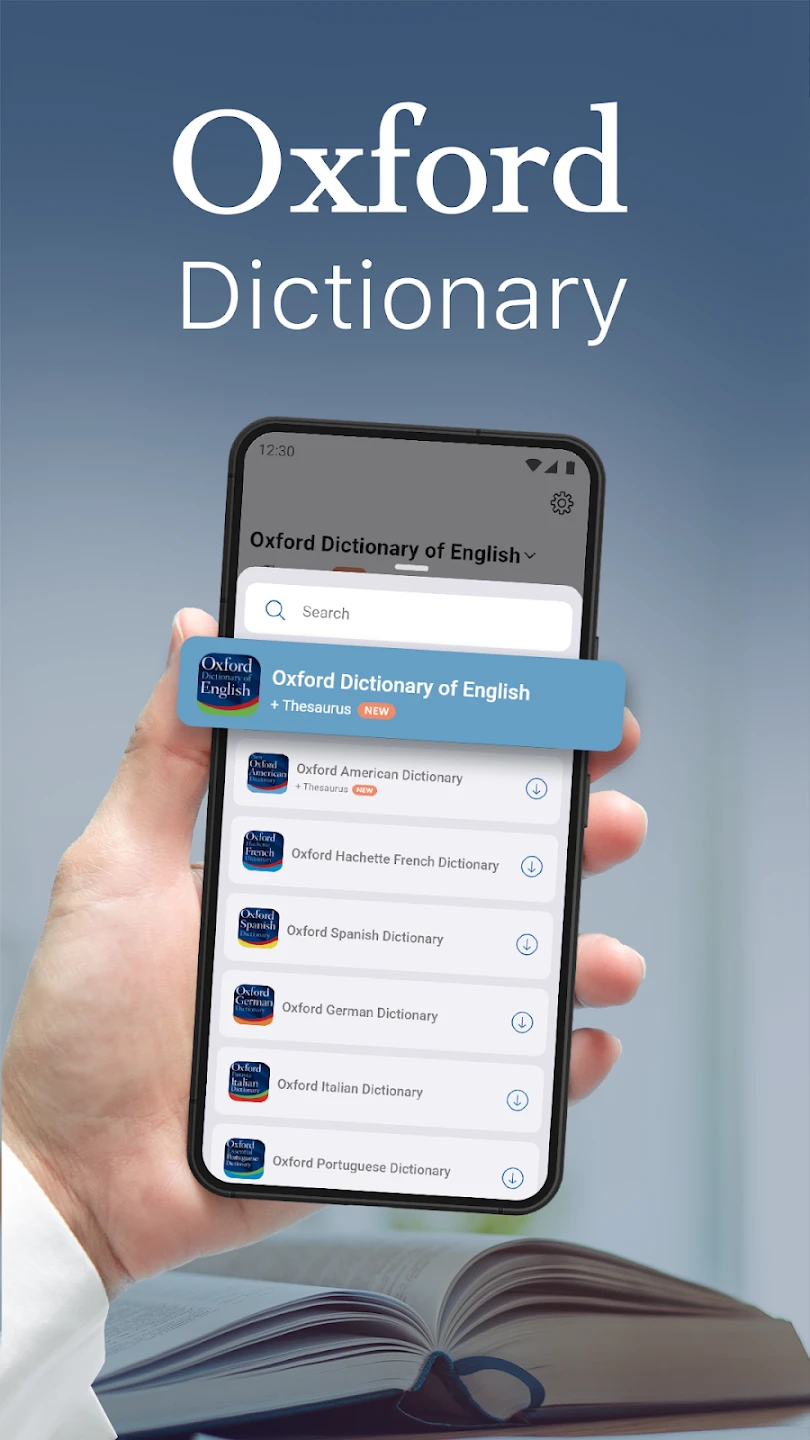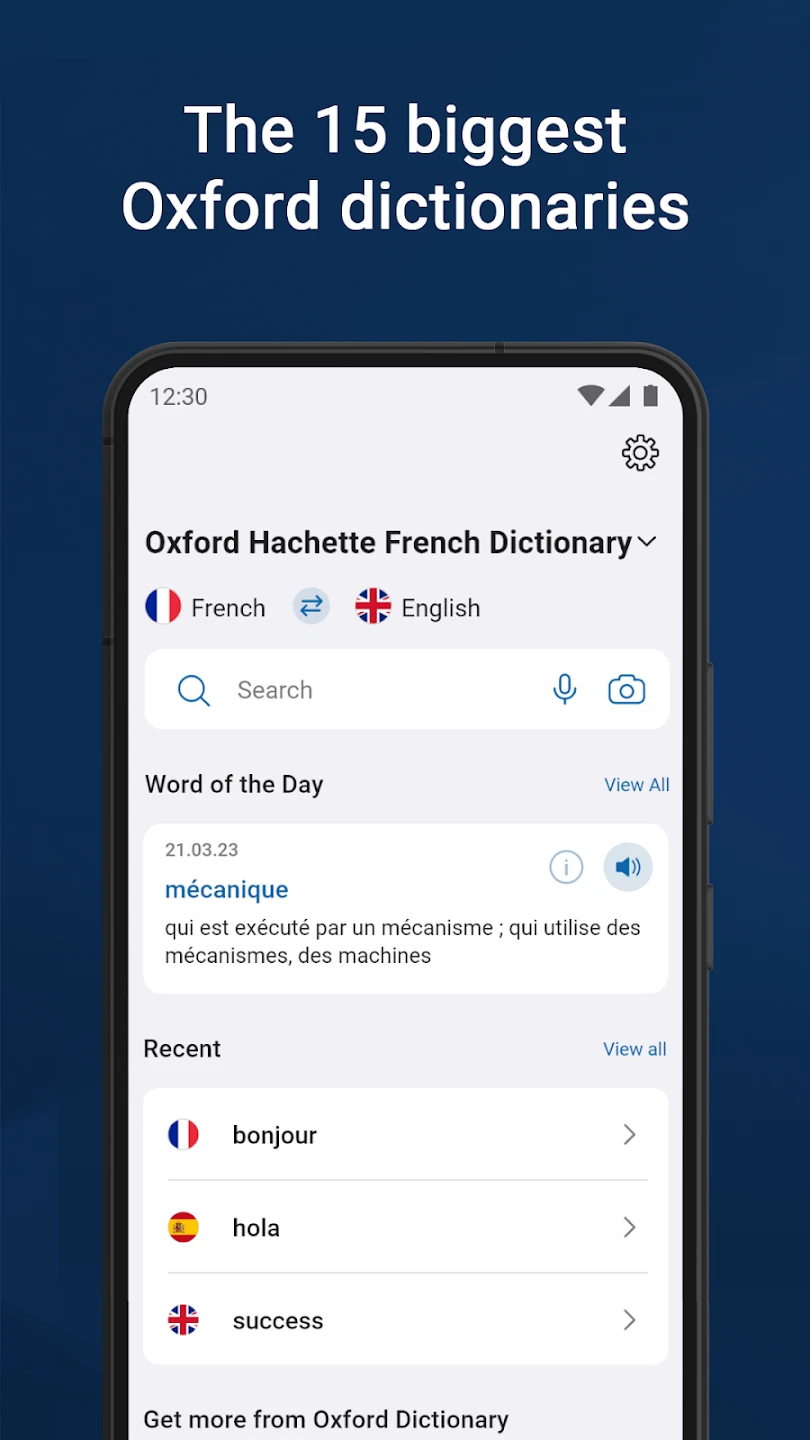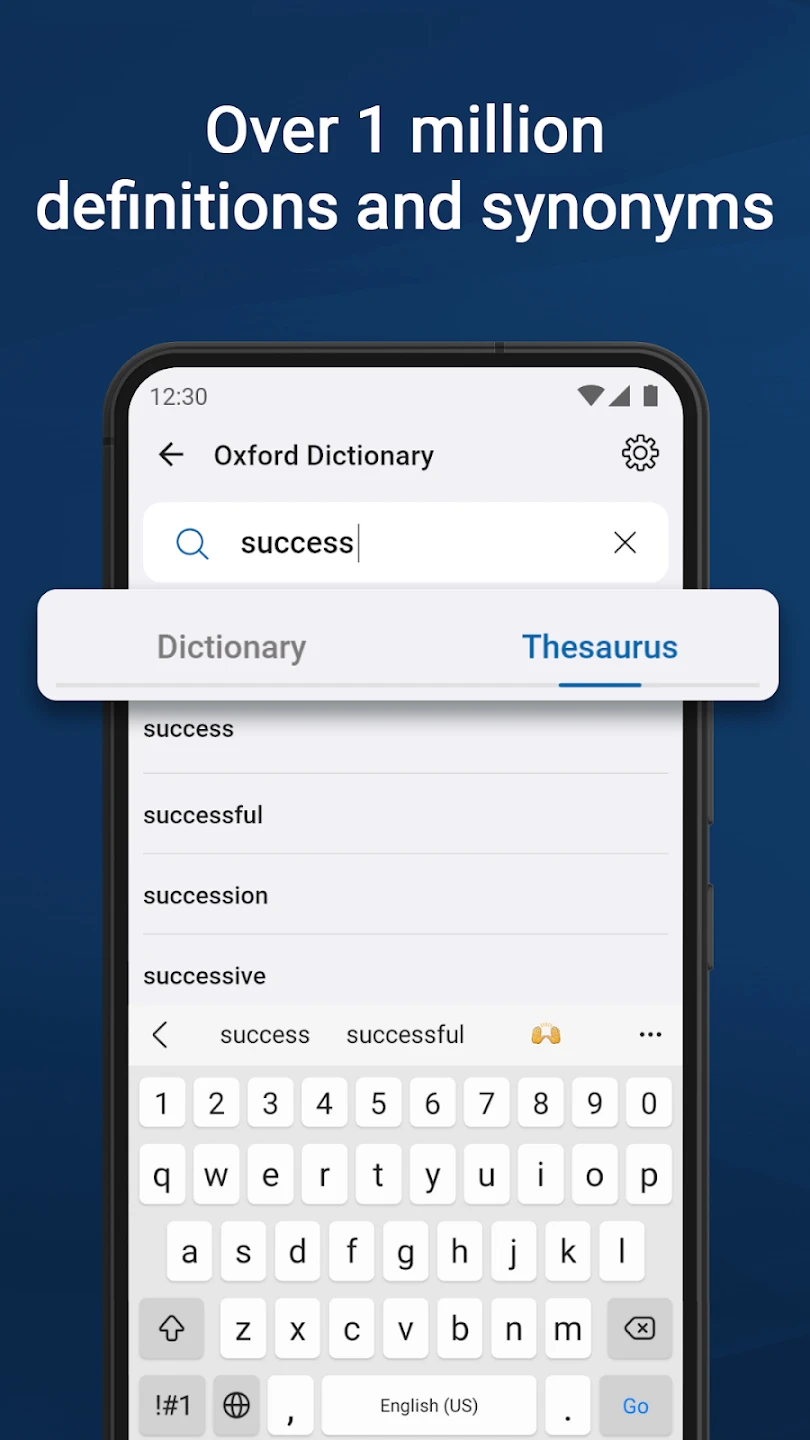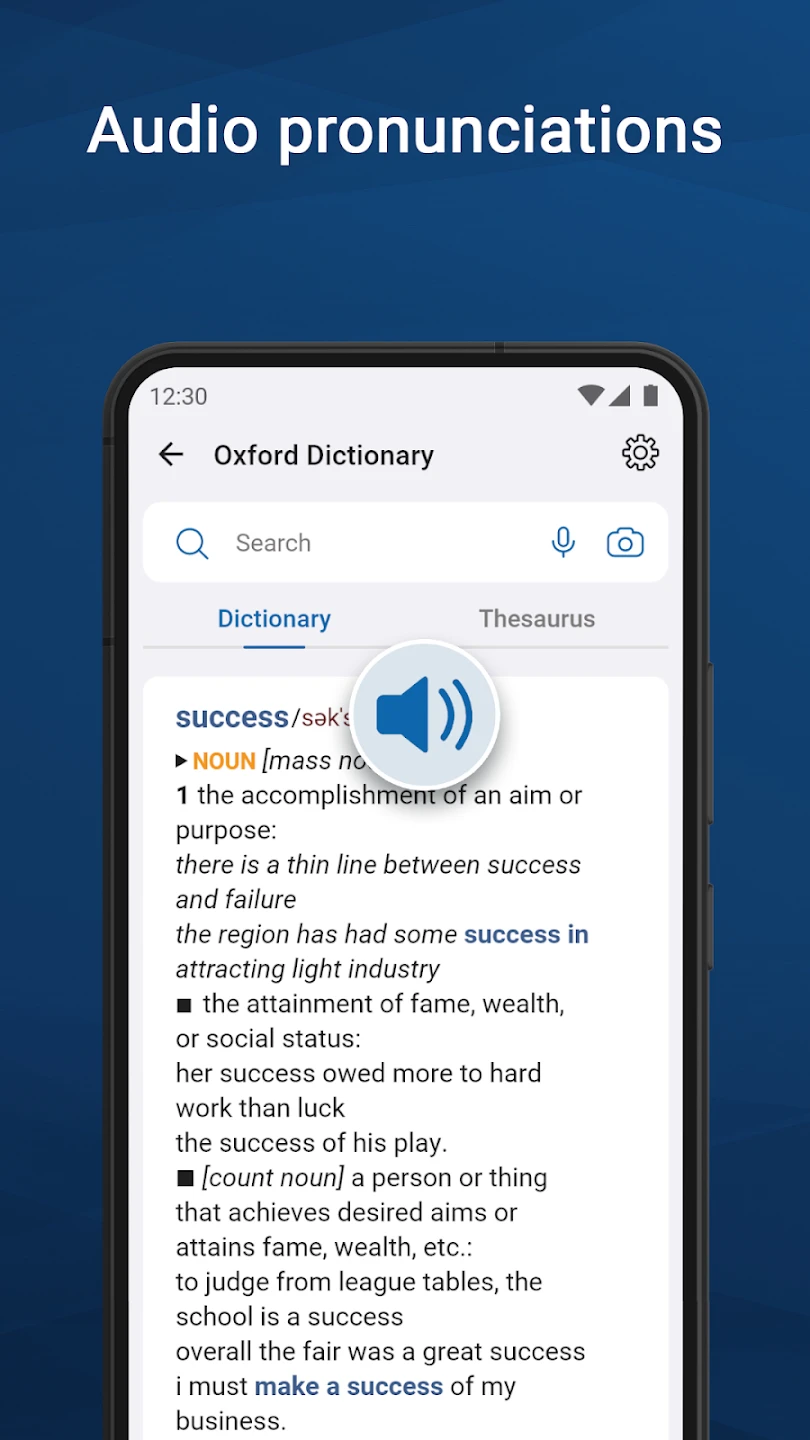 |
|
| Rating: 4.4 | Downloads: 50,000,000+ |
| Category: Books & Reference | Offer by: MobiSystems |
The Oxford Dictionary & Thesaurus app provides comprehensive word definitions, translations, and usage examples, drawing directly from the esteemed Oxford linguistic resources. Designed for students, writers, and language enthusiasts, it offers reliable language assistance on any compatible device, combining authoritative terminology with practical tools to enhance communication and vocabulary skills.
This digital reference tool elevates language learning by delivering native Oxford definitions alongside pronunciation guides and synonyms through its robust thesaurus component. The Oxford Dictionary & Thesaurus empowers users to communicate more precisely across personal, academic, and professional contexts, serving as an essential companion that adapts to diverse linguistic needs.
App Features
- Comprehensive Dictionary Database: Access over 650,000 words and phrases across multiple languages with precise definitions, etymologies, and contextual examples—ideal for mastering vocabulary or clarifying word meanings in academic writing.
- Advanced Thesaurus Integration: Discover nuanced synonyms with subtle connotations through the app’s sophisticated word suggestion system, featuring contextual usage examples to enhance writing style and avoid repetition.
- Native Oxford Pronunciation: Hear accurate word pronunciations with British accent models and visual phonetic breakdowns, helping users from beginners to native speakers refine their speaking skills anywhere.
- Cross-Reference Learning: Trace word origins through detailed etymology sections and related vocabulary, making complex linguistic concepts accessible for language students and etymology enthusiasts alike.
- Seamless Translation Engine: Translate English to over 40 languages with culturally appropriate equivalents and vice versa, contextualized for specific regions or usage scenarios to prevent miscommunication.
- Offline Mode Support: Synchronize frequently used dictionaries for offline access, ensuring reliable language assistance during travel or remote work situations without internet connectivity.
Pros & Cons
Pros:
- Academic-Grade Definitions
- Multilingual Translation Support
- Offline Capability
- Detailed Etymology Information
Cons:
- Mobile UI Complexity
- Advanced Features Require Premium
- Regular Sync Required
- Occasional Definition Lag
Similar Apps
| App Name | Highlights |
|---|---|
| Cambridge Wordbook |
Known for academic-focused word definitions with citation-ready formats, ideal for scholarly work. Includes pronunciation guides with IPA notation. |
| Merriam-Webster Dictionary |
Offers concise definitions with historical word usage examples. Features word games and quizzes for vocabulary building. |
| Collins Word Explorer |
Specializes in British English with regional usage notes and comprehensive thesaural cross-references. Includes word frequency indicators. |
Frequently Asked Questions
Q: How do I look up a word with pronunciation guidance?
A: Simply touch any word within your text to initiate a lookup. The app displays definitions while automatically highlighting the audio pronunciation icon—tap that to hear the correct pronunciation with visual phonetic breakdown.
Q: Can I use this offline after downloading?
A: Yes, the core dictionary and limited thesaurus functions operate offline after initial download. Premium features requiring database updates require internet connection.
Q: Is this suitable for learning British English versus American English?
A: The app offers distinct British English and American English dictionaries. Switch between versions via the settings menu for precise terminology variations.
Q: How does the translation functionality handle idioms?
A: The system prioritizes idiomatic translation with context-sensitive options. For example, “kick the bucket” translates to “die” with a cultural explanation noting this is a euphemism.
Q: Does it include obsolete word usage?
A: Yes, the historical sections provide etymology information for defunct terms, explaining why certain vocabulary fell out of common use over centuries.
Screenshots
 |
 |
 |
 |






